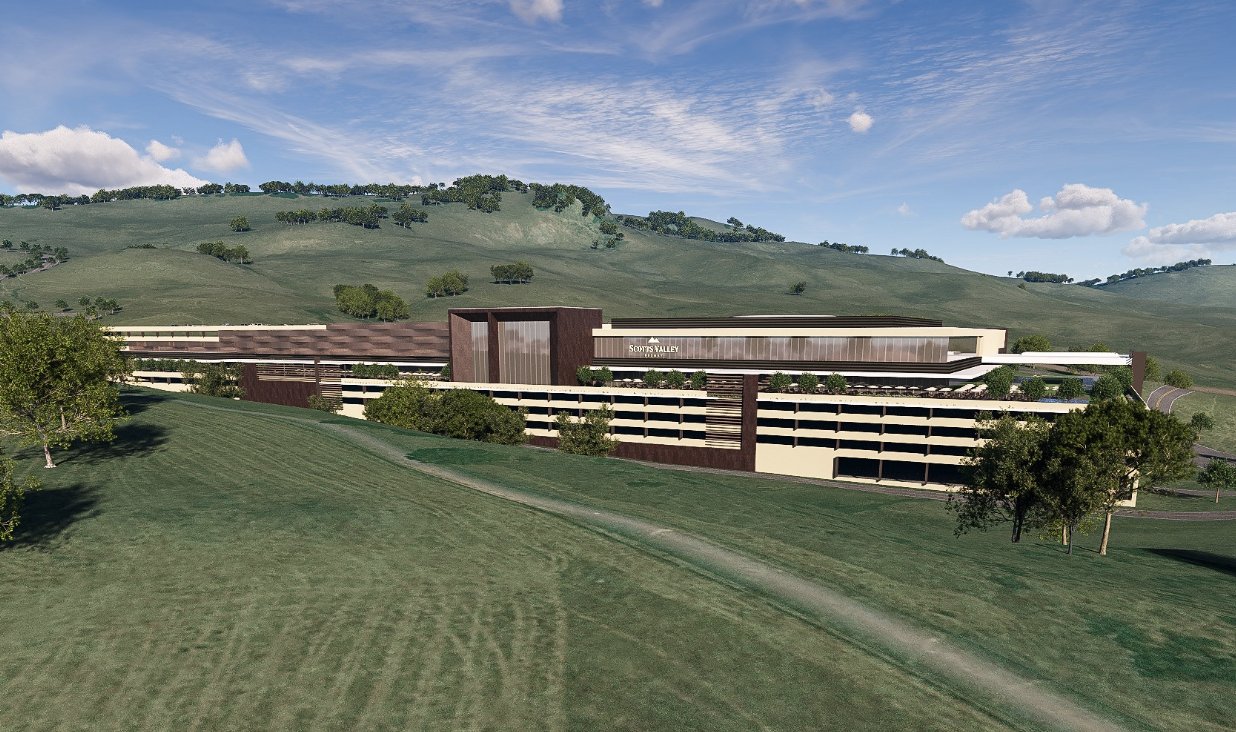
- Details
- By Kaili Berg
Last week, the Yocha Dehe Wintun Nation publicly released its official comments on the Department of the Interior’s (DOI) Environmental Assessment (EA) of the proposed Scotts Valley Band of Pomo Indians casino project in Vallejo, CA.
The Yocha Dehe tribe, which has strong ancestral ties to the region, criticized the EA as an inadequate and deeply flawed document that fails to meet the basic requirements of federal environmental law, including the National Environmental Policy Act (NEPA).
The Scotts Valley Band of Pomo Indians, who do not have ancestral ties to the Vallejo area, first proposed building the off-reservation casino with the backing of Las Vegas developers in 2016. The EA was published on July 8, 2024.
In its critique, the Yocha Dehe tribe described the EA as an “indecipherable mess” consisting of outdated information, incomplete data, and numerous inaccuracies. The tribe also highlighted that some of the site plans included in the EA were so poorly drafted that they depicted water flowing uphill.
According to a statement, the tribe’s primary concern revolves around the project’s potential to cause irreversible environmental damage and desecrate a Patwin cultural site.
The Yocha Dehe argues that the EA’s analysis was rushed and aimed at reaching a pre-determined outcome rather than conducting a genuine assessment of the environmental impacts.
The tribe’s comments assert that the EA grossly overlooked the project’s effects on endangered species, wetland habitats, and air quality. The analysis of traffic impacts was based on nearly two-decades-old data, leading to significant misrepresentations of the potential congestion and safety hazards.
The Yocha Dehe asserted that EA also failed to address critical issues related to grading, drainage, stormwater management, and wildfire risks and that the project’s engineering plans are “physically impossible.”
The tribe further stated that the EA excluded the voices of Patwin tribes and neglected to incorporate important Indigenous knowledge into its analysis.
The tribe also criticized the EA for omitting mention of the Solano Ranch project, a mixed-use development that is proposed for the same site, as well as a planned hotel and residential homes.
Yocha Dehe has joined a coalition of local tribes, municipal and county governments, and environmental groups in calling on the BIA to prepare a comprehensive Environmental Impact Statement.
Such an assessment, the tribe argues, would provide a more thorough and unbiased evaluation of the project’s potential impacts and consider less damaging alternatives.
Yocha Dehe’s comments come amid increasing opposition to the Scotts Valley casino project. Governor Gavin Newsom recently voiced his concerns, adding weight to the calls for a more rigorous environmental review.
Native New Online reached out out to the Scotts Valley Band of Pomo Indians for comment but did not hear back by press time/
More Stories Like This
Trump signs law that revokes some limits on drilling in Alaska’s National Petroleum ReserveSouthern Sierra Miwuk Nation Gets 900-Acres ofLand Back
Chilkat Indian Village Tells New Palmer Mine Owners They Are “Not Welcome” in Chilkat Valley
Tribes, Coastal Group Ask Army Corps to Revoke Permit for Texas Export Terminal
Michigan Tribes Tell Supreme Court: Don’t Bail Out Enbridge
Help us defend tribal sovereignty.
At Native News Online, our mission is rooted in telling the stories that strengthen sovereignty and uplift Indigenous voices — not just at year’s end, but every single day.
Because of your generosity last year, we were able to keep our reporters on the ground in tribal communities, at national gatherings and in the halls of Congress — covering the issues that matter most to Indian Country: sovereignty, culture, education, health and economic opportunity.
That support sustained us through a tough year in 2025. Now, as we look to the year ahead, we need your help right now to ensure warrior journalism remains strong — reporting that defends tribal sovereignty, amplifies Native truth, and holds power accountable.
 The stakes couldn't be higher. Your support keeps Native voices heard, Native stories told and Native sovereignty defended.
The stakes couldn't be higher. Your support keeps Native voices heard, Native stories told and Native sovereignty defended.
Stand with Warrior Journalism today.
Levi Rickert (Potawatomi), Editor & Publisher


